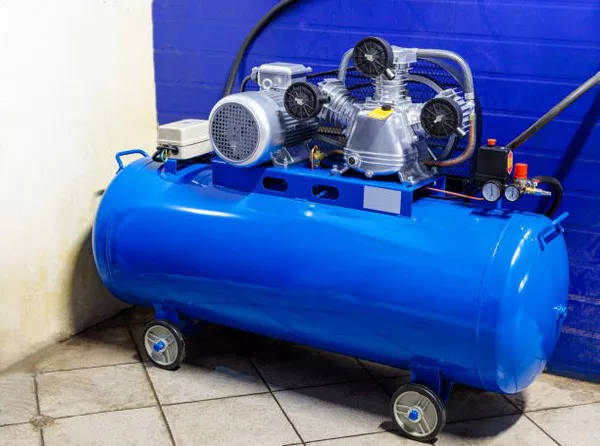As temperatures soar in the summer and plummet in the winter, a reliable HVAC (Heating, Ventilation, and Air Conditioning) system becomes an essential part of any home or business. The heart of your HVAC system is the compressor, responsible for the circulation of refrigerant and the regulation of temperature. However, like any mechanical component, HVAC compressors can wear out over time, and their replacement can be a significant investment. In this article, we will explore the factors, considerations, and estimates for the cost of a new HVAC compressor.
Understanding HVAC Compressors
Before we delve into the cost considerations, it’s crucial to understand the role of the HVAC compressor. The compressor is the engine of your HVAC system, responsible for compressing refrigerant gas, which is crucial for the heat exchange process. The refrigerant circulates between the indoor and outdoor units, allowing the system to regulate temperature effectively. When a compressor fails, the entire system may not function properly, leading to discomfort and potential energy wastage.
Factors Affecting the Cost
The cost of a new HVAC compressor varies significantly based on several key factors:
1. Type of Compressor:
HVAC systems use different types of compressors, including reciprocating, scroll, and rotary compressors. Each type has its characteristics, efficiency, and cost. Reciprocating compressors are typically the most affordable, while scroll and rotary compressors are known for their energy efficiency and quieter operation but may come at a higher cost.
2. System Size and Capacity:
The size and capacity of your HVAC system play a vital role in determining the cost of a new compressor. Larger systems require larger compressors, which are generally more expensive. Additionally, the capacity (measured in tons or BTUs) must match the cooling or heating requirements of the space.
3. Refrigerant Type:
The type of refrigerant your HVAC system uses can impact the cost of a new compressor. As the industry transitions to more environmentally friendly refrigerants, the availability and cost of replacement compressors may fluctuate. Older systems using outdated refrigerants may face higher costs due to reduced availability.
4. Brand and Model:
The brand and model of the compressor can significantly affect the cost. Established and reputable brands often come with a premium price, but they may offer superior reliability and warranties. While generic or lesser-known brands might be more affordable, they may come with less dependable performance and limited warranties.
5. Labor Costs:
Installation costs are a significant portion of the overall expense. Labor costs depend on factors like the complexity of the installation, location of the compressor, and the skill of the technician. It is essential to hire a qualified HVAC professional to ensure proper installation, which can also impact the compressor’s longevity and efficiency.
6. Warranty:
The length and terms of the warranty provided with the new compressor can affect its cost. A longer and more comprehensive warranty may add to the initial price but can save you money on potential repairs and replacements in the future.
Cost Estimates
The cost of a new HVAC compressor can vary widely, making it challenging to provide an exact figure. However, for a general idea, here are some ballpark estimates:
Reciprocating Compressors: For smaller HVAC systems that use reciprocating compressors, you can expect to pay anywhere from $800 to $1,500 for the compressor alone. Installation costs may range from $500 to $1,000, depending on your location and the complexity of the job.
Scroll and Rotary Compressors: These compressors are often found in mid-range to high-end HVAC systems. The compressor cost can range from $1,200 to $2,500, with installation costs averaging between $800 and $1,500.
Labor Costs: Labor costs for compressor replacement may vary, but the national average typically falls between $70 and $150 per hour. Installation usually takes several hours, depending on the system’s complexity and location of the compressor.
Total Replacement Cost: For a complete replacement of an HVAC compressor in a standard-sized residential system, you could be looking at a total cost ranging from $1,800 to $4,500, including the compressor and installation.
It’s crucial to remember that these are rough estimates, and the actual cost may vary widely based on the specific circumstances, geographic location, and the factors discussed earlier.
Considerations for Cost Savings
While a new HVAC compressor can be a significant investment, there are ways to mitigate the cost and potentially save money in the long run:
Regular Maintenance: Routine maintenance of your HVAC system can extend the lifespan of your compressor. Regularly changing air filters, cleaning coils, and scheduling professional tune-ups can prevent premature compressor failure.
Energy Efficiency: Consider investing in an energy-efficient HVAC system. Although it may have a higher upfront cost, it can lead to significant energy savings over time, reducing your overall operating expenses.
Extended Warranties: When purchasing a new compressor, opt for models that offer extended warranties. These warranties can provide peace of mind and protect you from unexpected repair costs.
Financing Options: Many HVAC companies offer financing options that allow you to spread the cost of a new compressor over time, making it more manageable for your budget.
Government Incentives: Check for government incentives, rebates, or tax credits for energy-efficient HVAC system upgrades. These incentives can help offset the initial cost of a new compressor.
Conclusion
The cost of a new HVAC compressor can vary widely, with numerous factors influencing the final price. While it’s essential to budget for this expense, it’s equally important to prioritize regular maintenance and energy efficiency to prolong the life of your HVAC system and reduce long-term costs. Always consult with a qualified HVAC professional to assess your specific needs and provide accurate estimates for the replacement of your HVAC compressor. With the right approach, you can ensure a comfortable indoor environment while managing costs effectively.

